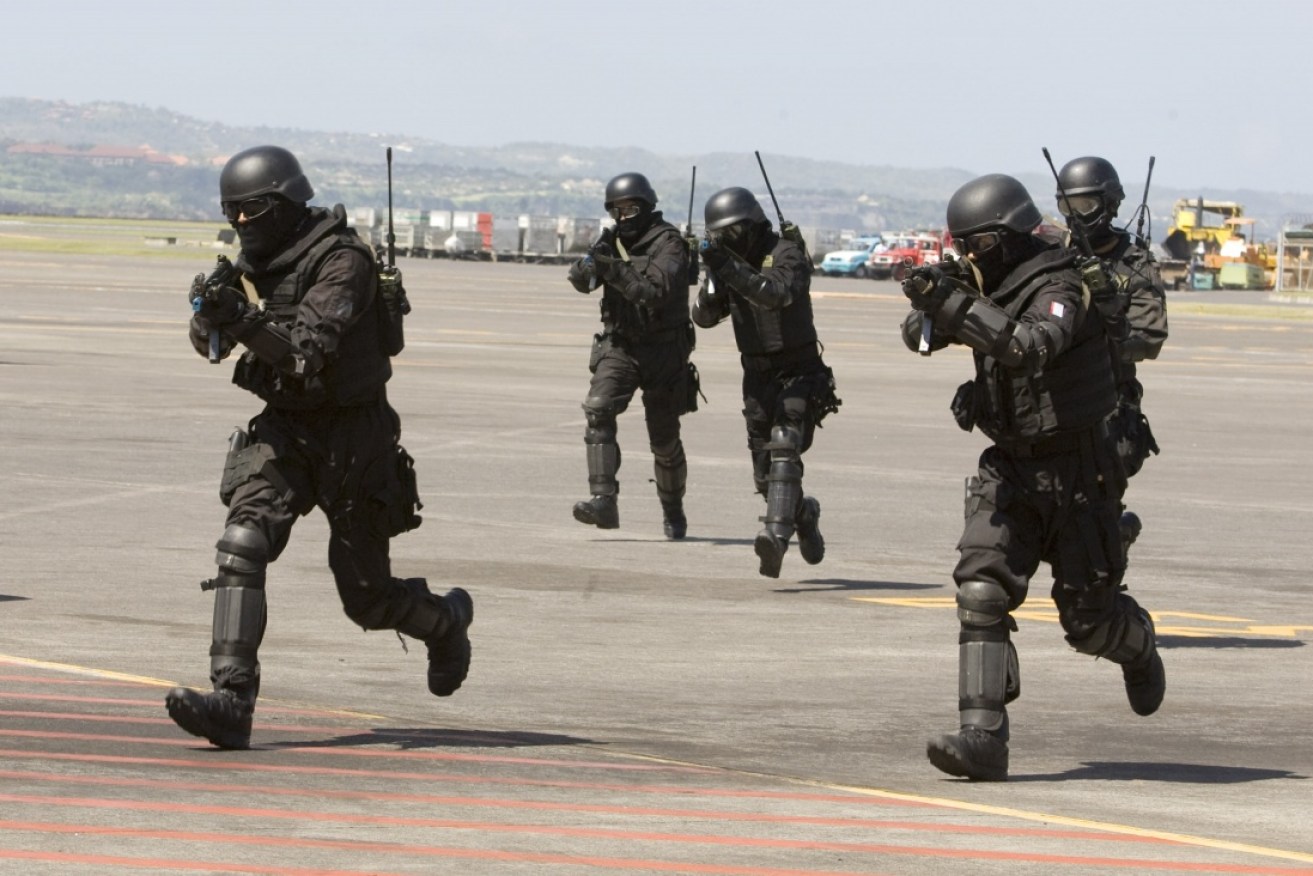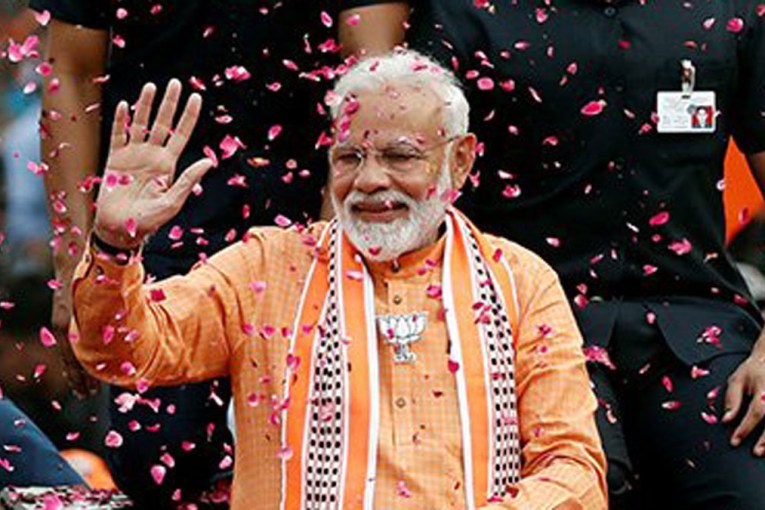Indonesia suspends military co-operation with Australia: reports


Indonesian Special Forces soldiers take position during a joint anti-terrorism exercise with Australia's elite unit SAS. Photo: AP
The Indonesian government has suspended all military co-operation with Australia after “offensive” training material was allegedly discovered at an Australian Special Forces base.
A commander from Indonesia’s Special Forces group, Kopassus, was insulted by the “laminated material” at the base in Perth, according to Indonesian newspaper Kompas.
A spokesman for the Indonesian military said co-operation between the two countries had been suspended, effective immediately, the ABC reported.
Fairfax Media has reported that the offending material was understood to include homework that suggested West Papua was part of Melanesia and should be given independence.
It also reportedly concerned material that ridiculed Indonesia’s national ideology of Pancasila — five principles that are based on just and civilised humanity, social justice, unity, belief in God and democracy.
The Australian newspaper has also alleged that Indonesian military took offence at classroom discussion of alleged war crimes in the 1965 killings of Communist sympathisers and murders of civilians during the Indonesian occupation of East Timor.
Kopassus forces train with Australia’s Special Air Service at the unit’s base in Perth.
The Kompas newspaper said teaching materials on display at the facility insulted the Indonesian military and Pancasila, the founding principles of the Indonesian state.
However, Indonesian military spokesman Major General Wuryanto told Fairfax Media that the suspension of co-operation was the result of a technical matter.
“It [co-operation] will continue once this technical matter has been resolved,” he said.
“However, this is not the basic reason for the suspension.
“Indonesia and Australia will resolve this technical matter and then the co-operation will continue.”
The order to suspend military co-operation came from Indonesian military commander General Gatot Nurmantyo on December 29, according to Kompas.
Mufti Makarim, director of Jakarta’s Institute for Defense and Peace Studies (IDSPS), told Kompas any negative discussion about Indonesian politics in a military context would be inappropriate.
Australian Defence Force chief, Air Chief Marshal Mark Binskin, wrote to the Indonesian military about the material in November, according the ABC.
Air Chief Marshal Binskin said it did not reflect the ADF’s views and was an isolated incident.

Indonesian Special Forces soldiers, also known as Kopassus, participate in a joint anti-terrorism exercise with Australia’s elite unit SAS at the Bali International Airport, in Kuta. Photo: AAP
Natalie Sambhi, a research fellow at the US-Asia Centre, told The New Daily on Wednesday the repercussions of the incident remained unclear.
Ms Sambhi said the insult appeared to be a “significant factor”, but the Indonesian military had chosen its words carefully.
“There must a be serious level of insult that’s perceived on behalf of Indonesia,” she said.
But Ms Sambhi said the language used by Indonesian officials pointed to a “constructive feeling” and suggested they’re “looking ahead”.
“This is an issue that started between two units, not a military to military problem, and it’s being investigated,” she said.
The Pancasila philosophy, which the material is said to have denigrated, brings together five principles around just and civilised humanity, social justice, unity, belief in God and democracy.

It is understood that Indonesia’s Kopassus special forces train in Perth. Photo: AP
Ms Sambhi said the philosophy was “very important” to Indonesians and taught in schools and to the military.
She said the relationship between the two countries was mutually beneficial and had been improving since a spying row in 2013.
In 2013, Indonesia was outraged by revelations that Australia had attempted to tap the phone of then-president Susilo Bambang Yudhoyono.
Ms Sambhi pointed to the co-operation between the two nations in the wake of MH370 air disaster.
“The last time that ties were cut after the spying issues, it seemed both sides accepted … that defence ties would be suspended but there were sequestered areas such as counter-terrorism,” she said.

Air Chief Marshal Mark Binskin wrote to General Gatot Nurmantyo in November. Photo: Department of Defence
By October 2016, Air Chief Marshal Binskin and Indonesian National Armed Forces Commander and General Gatot Nurmantyo had signed a Joint Statement on Defence Cooperation.
“The statement reflects our shared desire to broaden and strengthen our co-operation in priority areas, including counter terrorism; maritime security; humanitarian assistance and disaster relief; peacekeeping; and intelligence,” Air Chief Marshal Binskin said.
The relationship was important to Australia for counter-terrorism efforts and combating people smuggling, Ms Sandhi said.
Ms Sandhi said the relationship included military training exercises across all three military branches and the exchange of junior officers to Australian institutions like Duntroon and the Australian Defence Force Academy.








